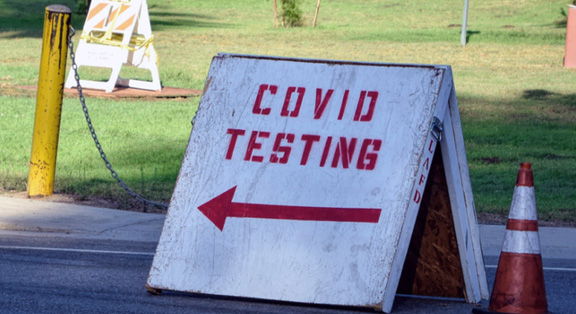A variant and fading vaccine protection could bring a rise in cases in April.
As British Columbia ends mask mandates and other pandemic measures, an independent group of experts warned Thursday the province could face a second, smaller Omicron wave within months.
The BC COVID-19 Modelling Group, composed of independent experts and academics, urged the government to authorize fourth vaccine doses for high-risk people and improve ventilation for essential services to blunt a potential sixth wave fuelled by the even more transmissible BA.2 sub-variant.
“With Canada having moved away from mask requirements and other mandated safety measures, there is a need to create safer indoor spaces, especially for those at higher risk,” the group’s report said.
COVID-19 cases among those 70-plus have dropped to less than a fifth of the peak of Omicron in January, according to the new report.
The drop in cases has been even more pronounced among younger age groups, but is difficult to quantify because most under 70 are no longer eligible for PCR testing.

But while B.C. will likely see short-term stability in case levels, the modelling group warns waning immunity from booster doses could see the BA.2 sub-variant fuel another Omicron wave nearing 1,500 daily reported cases by the end of April.
Omicron’s crest saw 4,078 daily cases reported on Dec. 31.
“The COVID-19 trajectory in B.C. over the next month depends strongly on how fast waning occurs and whether people continue to abide by safety measures, even if they are no longer required,” the report said.
Provincial health officer Dr. Bonnie Henry said last week that B.C. remains vulnerable to future variants that may transmit more easily or evade protection afforded by vaccines.
“Those are the things that we don’t yet know,” she said as she announced the end of the mask mandate March 10.
More than half of cases are now caused by the BA.2 sub-variant of Omicron, whose share of daily cases rose steadily through February and has now stabilized, Canada-wide data shows.
The risks of another wave are mitigated by the immunity British Columbians have from vaccination or previous infection, Henry and the group agree.
But they remain a concern for people who are considered high risk, including those over 70 and who are immunocompromised. The vast majority of high-risk and older people received their boosters before Dec. 31, almost three months ago.
According to reports from the United Kingdom and B.C.’s own figures, people who are unvaccinated are 10 times more likely to be hospitalized as a result of Omicron than those who are vaccinated.
But three to four months after a booster shot, that protection is cut in half.
Booster efficacy against infection from Omicron also drops sharply in the same timeframe.
“Many people in B.C., especially those most susceptible to severe health impacts of COVID-19, received boosters more than three months ago and are now experiencing declining levels of protection,” said the report.
The group recommended B.C. follow advice from Canada’s National Advisory Committee on Immunization to authorize a fourth dose for immunocompromised individuals three months after their third dose.
“The option of a fourth dose, 3 to 4 months following a third booster dose, would reduce hospitalization risks for those most susceptible to severe COVID-19 reaction,” the report said.
Ultimately, the group warned, the impacts of the BA.2 sub-variant will be determined by how many people continue to mask, limit gatherings and how quickly booster immunity wanes or is bolstered by fourth doses.
“While the COVID-19 situation is good and improving, B.C. faces a number of short-term risks,” the report said.
Article From: The Tyee
Author: Moira Wyton

